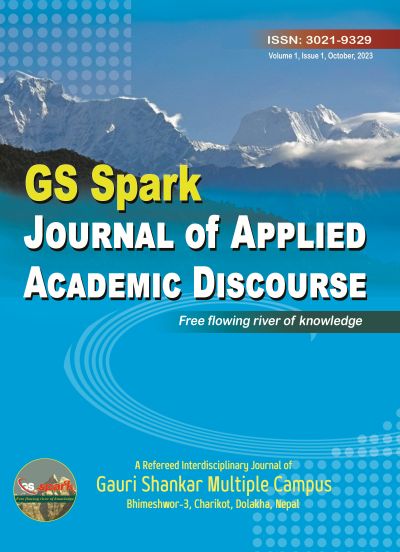The Cooking Solutions for Rural Livelihood: A Study of Sundarbazar Municipality
Keywords:
clean energy, eCookstove, rural livelihood, sustainable developmentAbstract
Electric cooking systems have been promoted in Sundarbazar Municipality of Lamjung district as an alternative to liquefied petroleum gas (LPG) for cooking purposes. This study aims to assess the effectiveness of electric cooktops on rural livelihood. The study was conducted using a sample survey with a simple random sampling technique. The data was gathered through household surveys, focused group discussions, and field observations. The major source of data was a sample survey.
The study found that local people experienced induction cooktops as a time-saving, fast processing, and economically viable option for cooking purposes. The study also found that electric cooking solutions may be a good alternative to LPG in both urban and rural areas, as Nepal will produce excess electricity in the near future. The study suggests that innovation for electric cooking has the possibility of enhancing better livelihood in rural contexts. This study concludes that electric cooking solutions have positive impacts on rural livelihoods. The promotion of electric cooking among households can reduce the consumption of imported LPG. The study suggests that local governments should play an active and major role in advocating for electric cooking, providing training, and different forms of incentives such as distributing prizes. The study also suggests that capacity-building programs for users.
Downloads
Downloads
Published
How to Cite
Issue
Section
License
Copyright (c) 2023 The Author(s)

This work is licensed under a Creative Commons Attribution-NonCommercial 4.0 International License.
This license enables reusers to distribute, remix, adapt, and build upon the material in any medium or format for noncommercial purposes only, and only so long as attribution is given to the creator.




